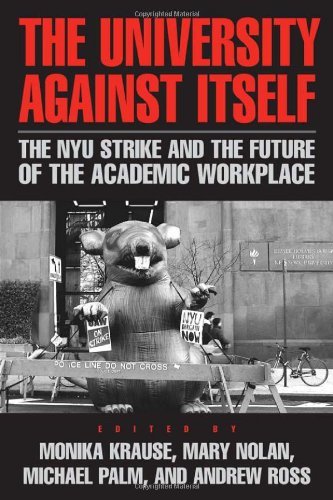What do you think?
Rate this book


All of the contributors were either participants in the NYU strike-graduate students, faculty, and organizers-or are nationally-recognized writers on academic labor. They are deeply troubled by the ramifications of corporatizing universities. Here they spell out their concerns, offering lessons from one historic strike as well as cautions about the future of all universities.
Contributors include: Stanley Aronowitz, Barbara Bowen, Andrew Cornell, Ashley Dawson, Stephen Duncombe, Steve Fletcher, Greg Grandin, Adam Green, Kitty Krupat, Gordon Lafer, Micki McGee, Sarah Nash, Cary Nelson Matthew Osypowski, Ed Ott, Ellen Schrecker, Susan Valentine, and the editors.
280 pages, Kindle Edition
First published January 1, 2008